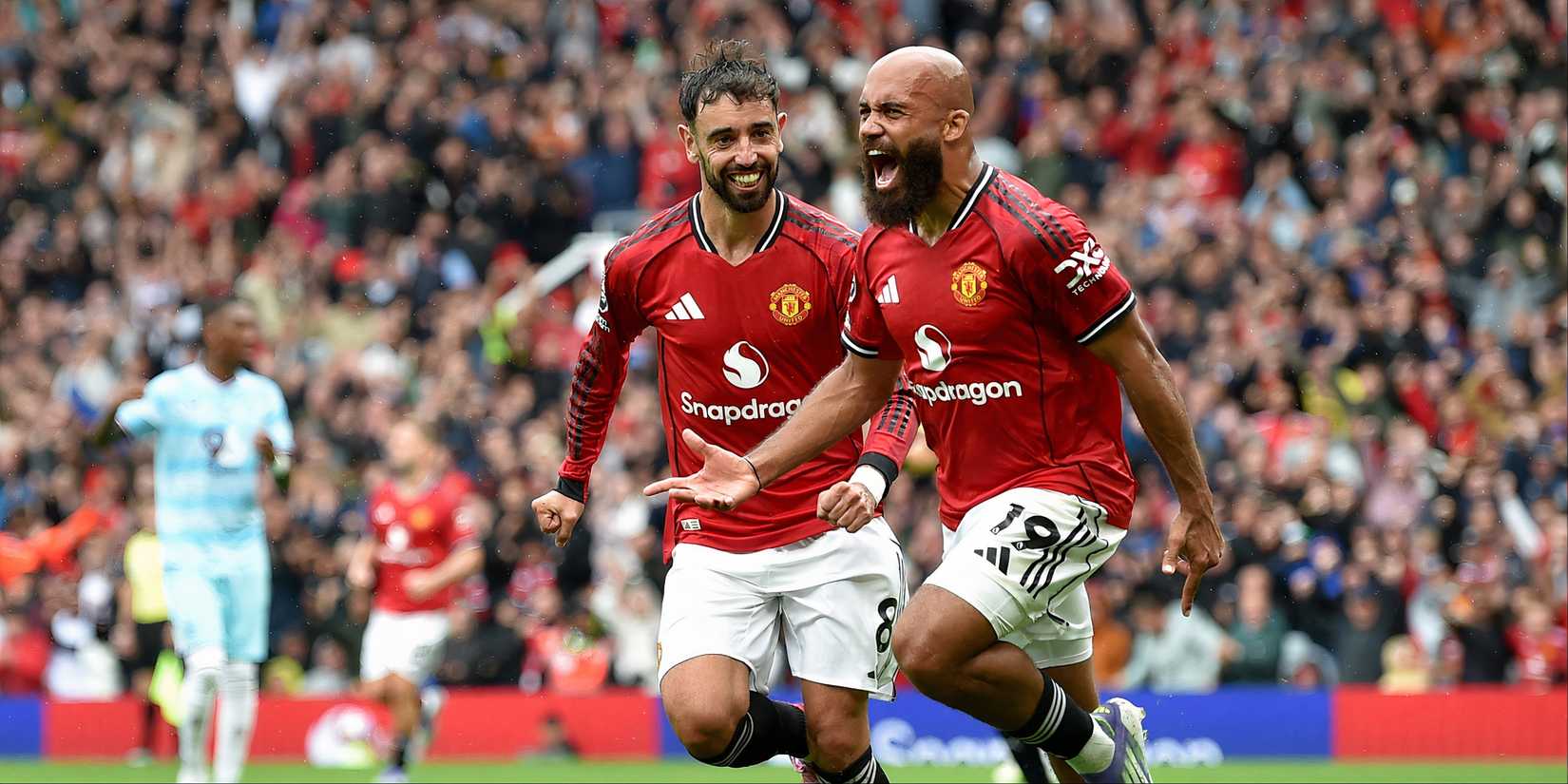Ruben Amorim stood before Old Trafford at the end of the 2024/25 campaign, and he declared that Manchester United would rise again after a wretched year for the club. His promise was couched in specific terms.
It felt genuine and rousing, but the frustrating start to the new campaign has done little to overturn the issues of last year, with United finishing 15th in the Premier League and losing the Europa League final to Tottenham Hotspur.
One step forward, two steps back. However, there have been signs of improvement this season. Namely, much has been made of the Red Devils’ chance creation, underperforming right now in front of goal.
|
Premier League 25/26 – xG Leaders |
||
|---|---|---|
|
Team |
Goals scored |
xG |
|
Man United |
7 |
11.8 |
|
Man City |
14 |
11.3 |
|
Crystal Palace |
8 |
11.2 |
|
Brighton |
9 |
10.3 |
|
Chelsea |
11 |
9.9 |
|
Data via FBref |
||
Expected Goals (xG) is a metric designed to measure the probability of a shot resulting in a goal.
Still, this points toward potential success in the final third, and perhaps vindicates Amorim’s decision to get rid of the controversial ‘bomb squad’.
Why Amorim got rid of the bomb squad
Amorim’s decision to axe a number of Man United players pushing for moves away was an understandable decision, but one which indeed came with more than a measure of notoriety.
Comprised by Marcus Rashford, Alejandro Garnacho, Antony, Tyrell Malacia and Jadon Sancho, INEOS have succeeded in offloading, permanently or otherwise, 80% of that fodder, with recent news telling the story of Malacia’s reintegration into the United fold.
Amorim has been working tirelessly toward creating a new culture at the Theatre of Dreams, a hothouse for player development and success on the field. There have been a few bumps in the road to put it mildly, but he continues to work toward this goal.
The departure of Rashford, who has joined Barcelona on loan after falling out of favour under Amorim and spending a spell with Aston Villa last term, stings most of all. His United career has been punctuated with immense bursts of form, but also many frustrating moments.
Treble winner Teddy Sheringham even made the unflinching remark that the Three Lions man has earned “a step up that he hasn’t deserved“.
However, few could deny Rashford has earned his flowers across these opening months in Catalonia, two goals and five assists across nine matches in all competitions.
Likewise, Antony and Garnacho and Sancho won’t be remembered too fondly, with a mix of high salaries, high transfer fees and high expectations, leaving a bitter taste indeed.
Perhaps it’s an indication of the scale of the rebuild required at Man United that Amorim might need to turn a new variation of the bomb squad away. Indeed, there are a number of first-teamers who must be axed from the first team.
Man Utd’s new bomb squad
Manchester United are still performing below expectations and below the ostensible level they are capable of. Signings such as Bryan Mbeumo and Matheus Cunha spoke of a promising strategy from INEOS and Sir Jim Ratcliffe, but there are still too many stragglers.
Some stars have been at the club for too long and need to be shipped out so as to reshape and redefine this team. There are three in particular, of a defensive persuasion, who cannot wear the Red Devil shirt this time next year. Having played a combined 760 appearances for the club, enough football has been played for a decision to have been made: they need to go.
Harry Maguire, at least, is out of contract at the end of the season, and so will likely be bid farewell and allowed to venture off for a new chapter. However, Luke Shaw is in the penultimate year of his contract, and he’s not pulling his weight.
Man United’s wage bill is a mountainous thing. Fourth in the standings is Maguire, whose £190k-per-week pay packet is possibly not an accurate reflection of his quality, of his role in the Old Trafford system.
Likewise, the £150k-per-week Shaw’s once-prodigious potential has been eroded by injuries, so many injuries. A shame, for he was once billed for greatness and has still played a solid part over the past decade, but the 30-year-old operates as a left-sided centre-back in Amorim’s system, and there’s an upgrade out there, for sure.
Then, at a lesser cost to the club, but still a sizeable drainage, is Diogo Dalot, who earns £85k per week and has had his ups and downs in Manchester, but is also at odds in Amorim’s set-up.
The Portuguese international’s contract expires in 2028, but given that he is only 26 years old, there are surely suitors out there who would pay to take him off INEOS’s hands. Last season, YouTuber AliceTalksFooty claimed the full-back had “fallen off a cliff“, so poor was his form.
As Amorim continues to piece together a fluent and sustainable system at Man United, perhaps it wouldn’t be the worst idea in the world to get rid of these defenders, all long-serving stars and all epicentral to the turmoil at the club.
These defenders, moreover, make up about 14% of Man United’s towering wage structure, a total of £425k per week, and that’s a sizeable amount which could be applied to new additions, strengthening key areas and shrewdly bringing over more defensive additions for cheaper fees and on lesser salaries, as is Racliffe and technical director Jason Wilcox’s objective.
While Rashford, Garnacho and co are all talented players, Amorim is ultimately the one in charge, and he felt that cutting out deadwood who weren’t fully committed to the cause was for the greater good of his United team.
Maybe the scale is that much larger, and maybe more change is needed if Manchester United are finally going to stop the rot.







